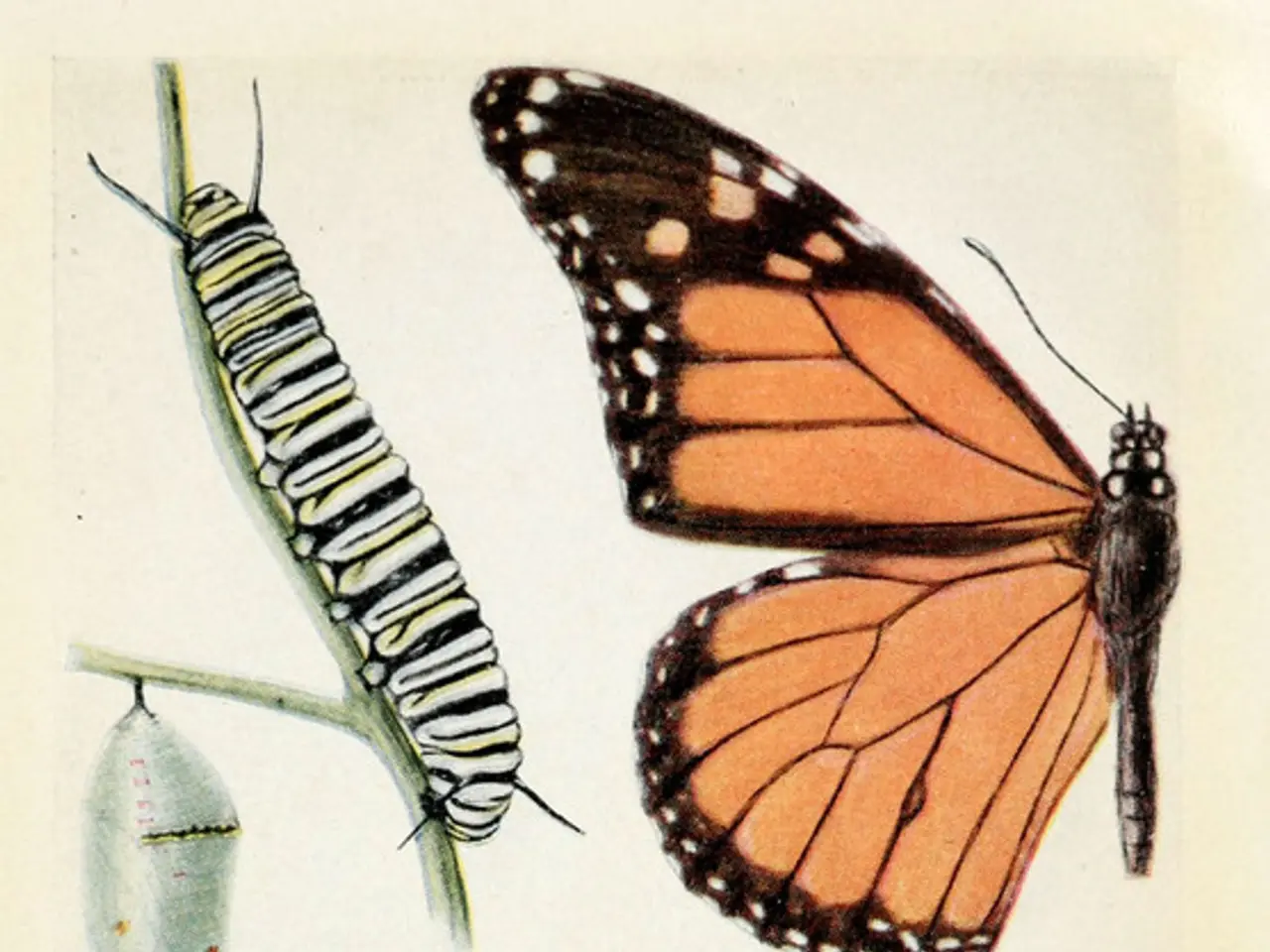Connection between hookworm infection and allergy development
In a groundbreaking development, the Malaghan Institute, a renowned research organisation based in New Zealand, announced human clinical trials in July 2019 to explore the health potential of hookworm parasites. Funded by the Health Research Council, this research aims to uncover the benefits of these parasites in the treatment of allergies and asthma.
Our bodies are home to a vast array of microorganisms, most of which are essential for our survival. However, a small percentage can be harmful, causing diseases. The focus of the Malaghan Institute's research is on the less harmful aspects of these microorganisms, particularly hookworms.
Intriguingly, the presence of hookworm parasites appears to reduce the development of allergies and asthma by downregulating the activity of the host’s immune system. Clinical studies have shown that infection with a small, controlled number of hookworm larvae can alleviate symptoms of allergy and asthma, supporting the concept of "helminthic therapy" where the immune modulation by parasites can be beneficial against these conditions.
This immune modulation likely involves suppression of the immune responses that contribute to allergic inflammation, which typically involve heightened activity leading to asthma or allergic reactions. Hookworms, by dampening immune system activity, reduce the likelihood or severity of these hypersensitivity responses.
The research extends beyond the parasites themselves. The scientific community is also investigating the therapeutic uses of hookworm enzymes, particularly cysteine proteinases. These enzymes, found in parasites like hookworms, have strong effects on the parasite’s outer surface and may help develop novel anthelmintic drugs that kill the parasites. However, cysteine proteinases and similar enzymes might also have potential in therapeutic modulation of immune responses. While there is evidence these enzymes can break down worm structures in vitro and in vivo, their specific role or development as direct therapies for preventing allergies or asthma in humans is still under investigation.
Professor Graham Le Gros, from the Malaghan Institute, has been at the forefront of this research. In 2010, he received a grant from the government to work on a vaccine that will stop people in other countries from getting hookworm. The institute's current clinical trials involve up to 15 healthy Wellingtonians being infected with a low, safe dose of Necator americanus larvae and studied over a year. The scientists at Malaghan use a New Zealand mouse version of hookworm in their study, as it responds in the same way as the human hookworm.
The Malaghan Institute is not limiting its research to hookworms. They have similar trials in development for perennial hay fever and a chronic, allergic inflammatory disease of the oesophagus. The scientific community views research as a global partnership, with scientists like Professor Le Gros using their research to help people globally. Vaccines and therapies for infectious diseases have saved many lives and control of many infectious diseases is considered one of medicine's greatest accomplishments. This hookworm research continues this tradition, offering hope for those suffering from allergies and asthma.
References:
[1] The Conversation. (2019). Hookworms could be the next big thing in treating allergies and asthma. [online] Available at: https://theconversation.com/hookworms-could-be-the-next-big-thing-in-treating-allergies-and-asthma-119698
[4] Science Daily. (2020). Hookworm enzymes could offer new treatments for allergies and asthma. [online] Available at: https://www.sciencedaily.com/releases/2020/09/200907152002.htm
In the realm of health and wellness, scientists are investigating the medicinal potential of cbd, a compound found in hookworm enzymes. These enzymes, particularly cysteine proteinases, might offer new treatments for medical conditions such as allergies and asthma.
The Malaghan Institute's current research also extends to exploring the benefits of cbd in the treatment of other health issues, including perennial hay fever and a chronic, allergic inflammatory disease of the esophagus.




